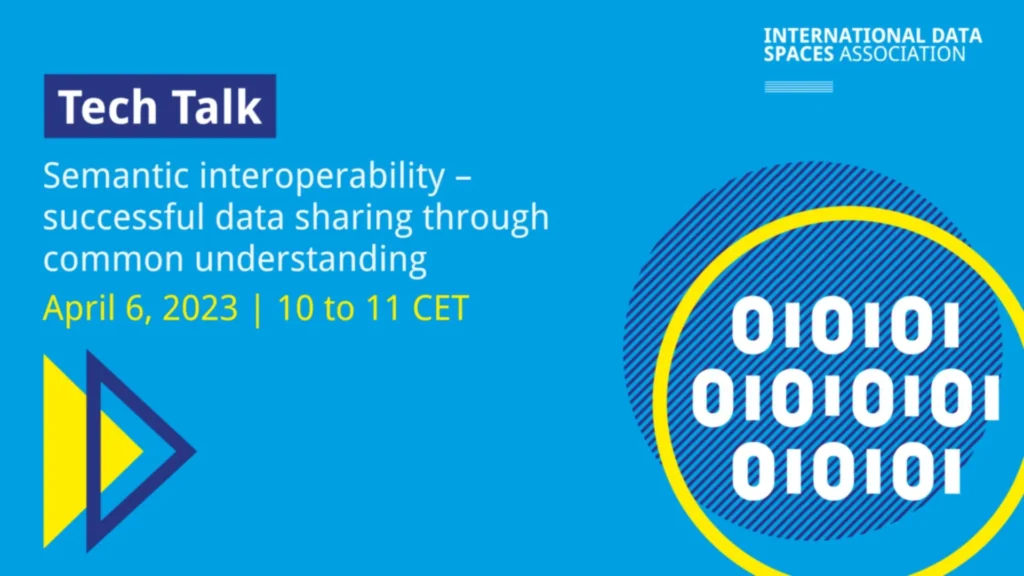igital economy, data has become a critical asset, often referred to as the “new oil.” The ability to share data seamlessly and securely across organizations and borders is fundamental to driving innovation, enhancing decision-making, and fostering collaboration. Data sharing allows businesses, governments, and individuals to unlock new opportunities and insights that were previously unimaginable.
However, with the immense potential of data sharing comes a host of challenges and risks. Issues such as data privacy, security, and governance are at the forefront of discussions around data sharing practices. This article explores the intricacies of data sharing, examining its benefits, potential risks, and the best practices for implementing effective and secure data sharing strategies.
The Benefits of Data Sharing
Data sharing offers numerous advantages across various sectors, from business and healthcare to government and research. Understanding these benefits is crucial for leveraging the full potential of data sharing initiatives.
Enhanced Decision-Making and Insights
One of the most significant advantages of data sharing is the ability to improve decision-making processes:
- Comprehensive Data Access: By combining data from multiple sources, organizations can gain a more holistic view of their operations, customers, and market trends.
- Data-Driven Strategies: Enhanced insights lead to more informed and effective business strategies, optimizing operational efficiency and driving growth.
Innovation and Research Advancements
Data sharing is a catalyst for innovation, enabling new discoveries and advancements:
- Accelerating Research: Shared data allows researchers to validate findings, build upon existing knowledge, and explore new hypotheses more rapidly.
- Enabling Collaboration: Cross-disciplinary and cross-organizational data sharing fosters collaboration and the development of new technologies and solutions.
Economic Growth and Efficiency
Sharing data can lead to significant economic benefits and operational efficiencies:
- Resource Optimization: Organizations can optimize resources and reduce costs by accessing shared data rather than duplicating data collection efforts.
- Market Competitiveness: Businesses can enhance their competitiveness by leveraging shared data to innovate and respond more effectively to market demands.
Social and Public Benefits
Data sharing also has profound societal implications, particularly in public health and governance:
- Public Health Improvements: Sharing health data enables better disease tracking, prevention, and response efforts, contributing to improved public health outcomes.
- Transparency and Accountability: Government data sharing promotes transparency, enhancing public trust and accountability in public institutions.
Challenges and Risks of Data Sharing
Despite its many benefits, data sharing also presents significant challenges and risks that must be carefully managed.
Data Privacy Concerns
One of the primary challenges of data sharing is ensuring the privacy of individuals:
- Personal Data Exposure: Sharing data increases the risk of exposing personal and sensitive information, potentially leading to privacy breaches.
- Compliance with Regulations: Organizations must navigate complex regulatory landscapes, such as GDPR and CCPA, to ensure data sharing practices comply with data protection laws.
Security Risks
Data sharing can expose organizations to various security threats:
- Unauthorized Access: Without proper controls, shared data can be accessed by unauthorized parties, leading to data breaches and loss of sensitive information.
- Cybersecurity Threats: Sharing data increases the attack surface for cybercriminals, making robust cybersecurity measures essential.
Data Governance and Quality Issues
Effective data sharing requires robust governance and data quality management:
- Inconsistent Data Standards: Different organizations may have varying data standards and practices, complicating the integration and use of shared data.
- Data Accuracy and Integrity: Ensuring the accuracy and integrity of shared data is crucial to maintaining its value and reliability.
Legal and Ethical Challenges
Legal and ethical considerations are paramount in data sharing:
- Intellectual Property Rights: Determining the ownership and intellectual property rights of shared data can be complex and contentious.
- Ethical Use of Data: Organizations must ensure that shared data is used ethically, respecting the rights and interests of data subjects.
Types of Data Sharing Models
Various models of data sharing exist, each with its own advantages and considerations. Understanding these models helps organizations choose the most suitable approach for their needs.
Open Data Sharing
Open data sharing involves making data freely available to the public:
- Government and Public Sector: Governments often share open data to promote transparency and public engagement.
- Research and Academia: Researchers may share data openly to advance scientific knowledge and encourage collaboration.
Closed Data Sharing
Closed data sharing restricts data access to specific parties:
- Confidential Business Data: Companies may share sensitive data with partners or collaborators under strict confidentiality agreements.
- Restricted Research Data: Some research data is shared within a closed network of approved users to protect proprietary information or sensitive subjects.
Federated Data Sharing
Federated data sharing involves multiple organizations sharing data in a decentralized manner:
- Healthcare and Financial Sectors: Federated models are common in industries where data privacy and security are critical, allowing data sharing without centralized data storage.
- Collaborative Research: Federated sharing enables collaborative research across institutions while maintaining data sovereignty.
Data Marketplaces
Data marketplaces provide a platform for buying and selling data:
- Commercial Data Exchanges: Businesses can monetize their data by offering it for sale through data marketplaces.
- Data Brokers: Third-party data brokers facilitate the exchange of data between buyers and sellers, often adding value through data aggregation and analytics.
Best Practices for Effective Data Sharing
To maximize the benefits and mitigate the risks of data sharing, organizations should adhere to best practices in data management, privacy, and security.
Establishing Clear Data Governance
Robust data governance frameworks are essential for managing data sharing effectively:
- Data Stewardship and Ownership: Define clear roles and responsibilities for data stewardship and ownership to ensure accountability.
- Policies and Procedures: Develop comprehensive policies and procedures for data sharing, including guidelines for data access, usage, and protection.
Ensuring Data Privacy and Compliance
Protecting data privacy and complying with regulations is critical in data sharing initiatives:
- Privacy by Design: Incorporate privacy considerations into the design and implementation of data sharing systems and processes.
- Regulatory Compliance: Stay informed about relevant data protection regulations and ensure that data sharing practices comply with these requirements.
Implementing Strong Security Measures
Security is a cornerstone of effective data sharing. Organizations should implement robust security measures, including:
- Encryption and Access Controls: Use encryption to protect data in transit and at rest, and establish strict access controls to limit data access to authorized users only.
- Regular Security Audits: Conduct regular security audits and assessments to identify and address vulnerabilities in data sharing systems.
Maintaining Data Quality and Integrity
High data quality and integrity are essential for the value and reliability of shared data:
- Data Standardization: Adopt consistent data standards and practices to facilitate integration and interoperability.
- Data Validation and Cleansing: Implement processes for validating and cleansing data Fostering a Culture of Ethical Data Use
Promoting ethical data use is crucial for building trust and ensuring the responsible handling of shared data:
- Ethical Guidelines and Training: Develop and enforce ethical guidelines for data sharing and provide training to employees on responsible data use.
- Transparency and Accountability: Foster transparency in data sharing practices and establish mechanisms for accountability and oversight.
Leveraging Technology for Data Sharing
Advances in technology provide powerful tools for facilitating secure and efficient data sharing:
- Blockchain and Distributed Ledger Technologies: These technologies offer secure, transparent, and tamper-proof mechanisms for data sharing.
- Artificial Intelligence and Machine Learning: AI and machine learning can enhance data sharing by automating processes and providing advanced analytics and insights.
Real-World Examples of Data Sharing
To illustrate the practical applications and benefits of data sharing, let’s explore several real-world examples across different sectors.
Healthcare: Improving Patient Outcomes Through Data Sharing
In the healthcare sector, data sharing has revolutionized patient care and medical research:
- Electronic Health Records (EHRs): The sharing of EHRs among healthcare providers enables better coordination of care and improves patient outcomes.
- Genomic Data Sharing: Collaborative projects like the Global Alliance for Genomics and Health facilitate the sharing of genomic data, advancing research in personalized medicine and disease prevention.
Government: Enhancing Transparency and Public Services
Governments around the world are leveraging data sharing to improve public services and transparency:
- Open Data Portals: Many governments have established open data portals to provide public access to datasets on various topics, from transportation and education to public health and safety.
- Inter-Agency Data Sharing: Governments use data sharing to enhance coordination and efficiency among different agencies, improving service delivery and policy-making.

Business: Driving Innovation and Market Competitiveness
Businesses are increasingly adopting data sharing to drive innovation and gain a competitive edge:
- Supply Chain Data Sharing: Companies share data with suppliers and partners to optimize supply chain operations, reduce costs, and enhance product quality.
- Data Monetization: Firms like credit bureaus and marketing agencies monetize their data by providing valuable insights to other businesses through data sharing agreements.
Research and Academia: Accelerating Scientific Discovery
Data sharing is a cornerstone of modern scientific research, enabling faster and more collaborative advancements:
- Scientific Data Repositories: Researchers contribute to and access large scientific data repositories, facilitating the replication and validation of studies and accelerating new


1 thought on “Understanding Data Sharing”